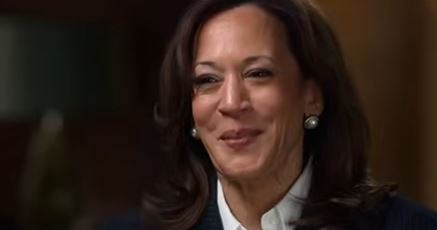Kamala Harris has described the point in the 2024 campaign when she first sensed “something was a little off” with Joe Biden, saying a phone call from his debate-preparation camp days before his 27 June debate with Donald Trump left her worried he “didn’t want that debate,” a concern she now says she should have raised more forcefully with senior aides. Speaking in a newly released interview to promote her memoir, Harris said the call was brief but memorable because Biden sounded disengaged from the looming prime-time clash and less interested in rehearsing arguments than she expected from a veteran debater. “He called me from debate camp … and I could tell something was a little off,” she said. “And I was concerned about — I just, I don’t think he wanted to debate, is my point.” The recollection, shared during a taping of the Diary of a CEO podcast and echoed in write-ups of the interview on Thursday, is the most direct account Harris has given of her private misgivings ahead of the debate whose faltering performance ultimately set in motion Biden’s withdrawal and her own brief, 107-day general election campaign that ended in defeat that November.
Harris said she weighed whether to escalate her concern in real time but decided against it, worrying that questioning the incumbent’s readiness would be read as self-interested coming from his running mate and potential successor. According to summaries of the conversation, she frames the moment as an inflection point that, in hindsight, she wishes she had handled differently. “He didn’t want that debate,” she reiterated, describing the call as a departure from Biden’s usual appetite for political combat and retail politics. The vice president at the time had been part of Biden’s informal read-in circle for the CNN debate in Atlanta, but she was not at the Georgia “debate camp” when he phoned. She recounted sensing a lack of urgency that contrasted with the high-stakes event awaiting the campaign amid voter concerns about inflation, immigration and the president’s age.
Biden’s debate performance on 27 June 2024 was widely judged a political calamity for the re-election bid. He delivered uneven answers, trailed off in several exchanges and failed to parry Trump’s attacks with the clarity allies hoped to see. As subsequent reporting and fact checks noted, the months that followed saw a surge of deceptively edited “cheap-fake” clips designed to exaggerate his verbal stumbles, but the live debate itself did not require editing to register as damaging: the images of a halting delivery and moments of visible confusion were broadcast to tens of millions. Harris’s account places her private alarm before that night, locating it in the cadence and content of a preparatory call rather than in hindsight alone.
In the podcast conversation, Harris connects that phone call to a broader critique of the campaign’s judgment about whether Biden should press forward after the debate. She says she regrets not pushing harder when senior Democrats began to counsel a reset, and she describes her own posture in July as deferential to a president who was still weighing his options. As she tells it now, she feared that urging a change would be read as disloyalty or ambition; when Biden ultimately ended his bid later that month and endorsed her, the party moved with speed to consolidate behind her. Harris would become the Democratic nominee, assemble a fast-moving campaign that leaned on grassroots energy and new running-mate optics, and lose the general election to Trump in November by what she has lately described as a narrow national margin. Her revised timeline — concern before the debate, restraint as a matter of loyalty, acceleration after the withdrawal — is laid out as part of an attempt to explain decisions that are still raw among Democratic activists and donors.
